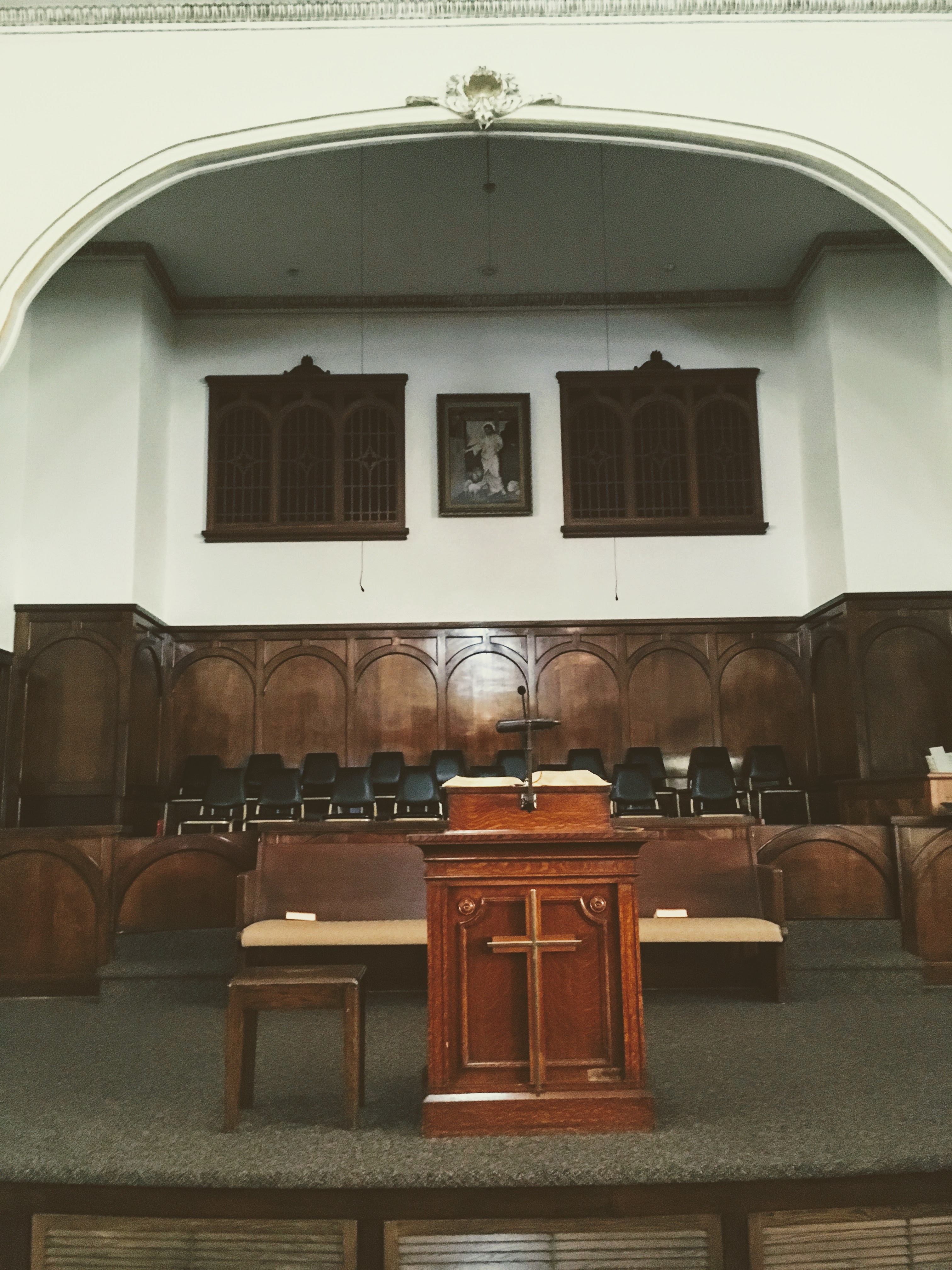August 23, 2020
- Flowers: Dorothy McKay
- Technology: Michael Barrett, Michelle Barrett
- Order of worship:
- Prelude: Rosemary Nettrouer
- Announcements
- Special music: Sarah Wine, “Shine” by Valcq and Alley from Spitfire Grill
- Pastoral prayer
- Message: Seek God First
- Scripture: Matthew 7:7-11
Open worship
Congregational song: “Seek Ye First,” accompanied by Rosemary Nettrouer
Good morning! Welcome!
Thank you to Dorothy McKay for the flowers and to Rosemary for the music. Thank you to Michael and Michelle for facilitating the technology.
- If you have announcements or prayer requests, please feel free to add them as comments on the Facebook page.
Announcements
- We are live streaming on Facebook and the church website (wichitaquakers.org) until the pandemic numbers in our area go down.
- Feel free to share our worship with your Facebook friends by posting a link.
- We have room for a few people to worship with us in person, and if you would like to do so, please be sure and let the office know.
- Among church activities this week
- We will have a very brief called business meeting at 10:45 this morning to address the appointment of the Nominating Committee. It will be here and on Zoom. You can find the link for the Zoom meeting in The Light This Week that came out on Friday.
- The 205 Sunday School class meets today at 3:00 via Zoom.
- Also, in The Light This Week, is the link to register for Great Plains Yearly Meeting, which will be held virtually September 11 & 12. Some of us will be Zooming in from the church library, and if you’d like to join in that small gathering, please let us know.
Special music: Sarah Wine
Prayer concerns
- Gordon Smith went home from the hospital on Friday, under hospice care. Gil Smith, their son, is spending considerable time helping Joan with Gordon’s care. They are taking it one day at a time. Joan and Gordon, Gil and Pam could use our prayers.
- Those who are struggling during this time of pandemic.
- Our church during the transition
- May we find clarity and energy for the tasks at hand and the decisions we will need to make as we find our way forward.
- May we find ways to use our assets wisely and well.
- May we discover ways to be a beacon of love in our world.
- May we be looking for the doors God is opening, and may we have the courage to walk through them.
Prayer
Loving and gracious God, we open our hearts to you.
Message
The Transition Team has finished reading The In-Between Church, about church size, and have begun a new book called Leading Congregational Change. The first chapter of this new book is called “Spiritual and Relational Vitality: The Driving Force of Transformational Change.” Here’s what the first page of that chapter in the workbook says:
Spiritual and relational vitality is the life-giving power that faithful people experience together as they passionately pursue God’s vision for their lives.
All of us long to experience the power of spiritual and relational vitality in our lives and our congregations. In fact, this vitality provides the energy for congregational transformation. Unfortunately, many have given up hope of living with this spirit.
Spiritual and relational vitality are two dimensions of a single reality – a consistent teaching of Scripture. Jesus summed it up in this way. ‘… “Love the Lord your God with all your heart and with all your soul and with all your mind. This is the first and greatest commandment. And the second is like it: “love your neighbor as yourself. All the Law and the Prophets hang on these two commandments’ (Matthew 22:35-40).
As The Message puts Matthew 22:37-40,
Jesus said, “‘Love the Lord your God with all your passion and prayer and intelligence.’ This is the most important [commandment], the first on any list. But there is a second to set alongside it: ‘Love others as well as you love yourself.’ These two commands are pegs; everything in God’s Law and the Prophets hangs from them.”
Leading Congregational Change continues:
All of the Law and the Prophets are summarized by a commandment to love God (spiritual vitality) and to love our neighbor (relational vitality). It’s like two sides to the same coin. Unconditional love for our neighbors is impossible unless we have a deep sense of the presence and power of God in our lives. The strongest indicator that our love for God is pure and obedient is when it results in a more faithful and effective expression of love for others (p. 3, Leading Congregational Change workbook, emphasis in text).
We might think about 1 John 4:20-21, which reads like this in The Message:
20-21 If anyone boasts, “I love God,” and goes right on hating his brother or sister, thinking nothing of it, he is a liar. If [she] won’t love the person [she] can see, how can [she] love the God [she] can’t see? The command we have from Christ is blunt: Loving God includes loving people. You’ve got to love both.
Loving God and loving people are two sides of the same coin.
I have spoken more than once since last January about relational vitality, the importance of good relationships as we move through this time of transition.
As an example, here’s one bit from a message I brought in early January, when I was looking at my job description in light of 1 Corinthians 13.
“We should be very clear,” I said:
- “If we assess the history of the meeting and discern a path forward, but do not have love, we are only a resounding gong or a clanging cymbal.
- “If we discern the strengths and weaknesses of the meeting and have a crystal-clear understanding of who we are, but do not have love, we are nothing.
- “If the meeting grows without love, we gain nothing.
- “If we get really good at being a healthy congregation, but don’t love each other, we are nothing but the creaking of a rusty gate.
- “If we figure out how to care for the building…
- “If we get the money part down pat, but don’t love, we’ve gotten nowhere.
“No matter what we say, what we believe, or what we do, we are bankrupt without love.”
All that is still true. Relational vitality is key to the task at hand.
But I haven’t talked all that much about the need for spiritual vitality, the need to love God, and as I thought about that, I thought about altar calls.
Have altar calls been a part of your religious experience? I realize that they might not have been for all of you, so I did a quick online search and found a short article that addresses these questions: “What does the Bible say about altar calls? Are altar calls biblical?”
Here’s the answer:
The practice of altar calls—calling people forward after an evangelistic sermon to make a public confession of faith in Christ— … gained prominence in the 20th century primarily through “crusades” such as those of Billy Graham. Also known as the “invitation system,” altar calls are regularly practiced as part of some church services, especially in many … evangelical churches where altar calls are an integral part of the services.
While altar calls as practiced today are not found in the Bible, their advocates cite several biblical examples as support for using them. First, Christ called each of His disciples publicly, telling them, “Follow Me” (Matthew 4:19; 9:9) and expecting them to respond immediately, which they did. Jesus was demanding an outward identification with Himself on the part of those who would be His disciples. Of course, the problem of Judas, who also responded publicly by leaving his life behind and following Jesus, is that Judas’s response was not synonymous with salvation.
Proponents of the altar call also cite Matthew 10:32 as proof that a new believer must acknowledge Christ “before [others]” in order for [Christ] to reciprocate. Calling people to the front of an arena or church is certainly acknowledging … that a decision has been made. The question is whether that decision is genuinely motivated by a sincere repentance and faith or whether it is an emotional response to external stimuli such as swelling music, heartfelt pleas from the pulpit, or a desire to “go along with the crowd.” Romans 10:9 makes it clear that genuine salvation comes only from heartfelt belief, which will then result in a verbal confession of that faith.
… altar calls can be an outward expression of genuine repentance and faith in Christ. The danger is in looking to the prayer or the response as evidence of salvation (Matthew 7:22). True salvation results in a life of continual sanctification as the Holy Spirit within the true believer produces more and more [spiritual] fruit (Galatians 5:22-23) as evidence of the reality of saving faith. (https://www.gotquestions.org/altar-calls.html)
Altar calls were part of my religious heritage among evangelical Christian Quakers. We had altar calls at youth camp, vacation Bible school, and revival meetings. And any Sunday’s message could have one, a call to people to come forward and accept salvation, seek sanctification, or say yes to a call to ministry.
I can remember singing “Just As I Am” with hands gripping the pew in front of me while the pastor says we’re going to sing one more verse. I can remember feeling guilty that I didn’t read the Bible and pray every day. I know that I hardly every heard an altar call without some sense of tug.
I remember one particular time, at Vacation Bible School at Parkrose Friends Church in Portland, Oregon. I couldn’t have been older than nine or ten. I can still see the gray flannelgraph board on an easel with the words “Ask, Believe, Confess” on it in bright colors. I remember the teacher asking us to bow our heads and to make a decision about whether we wanted to do those things that day. I said yes.
One problem with altar calls is that they play on people’s emotions in ways that can sometimes seem manipulative. They can put pressure on people to make a public confession of something that doesn’t reflect where their hearts really are.
Another problem for me is that part of the emphasis of altar calls seems to have been that each one of us needs to get right with God before we die unsaved and end up in hell. I have to say that avoiding hell isn’t a great motivating factor for me.
Having abundant life, that’s what motivates me. I want to live in fellowship with God. I want to find freedom from whatever hurts or blind spots or lack of love keep me from living an abundant life. I know that the strength of my desire is part of God’s grace.
What seems to be crucial to following that path to abundant life with God is a genuine opening of the heart. An altar call can be a welcome opportunity to do that, to say yes to God or to a deepening of the spiritual life or to a call to ministry.
But altar calls aren’t the only way to do that.
I remember sometime in the 1990s, coming across an opportunity to work with a spiritual director, someone trained by a program at the Benedictine Center in Indianapolis. I followed through and found someone I met with regularly, maybe once a month. We talked about what I wanted for those sessions and about openings and stuck places. She offered some new perspectives, and some books that I found helpful. Mostly she offered me a place to talk about matters of the spirit.
The most remarkable thing, though, is that just the deciding to do this thing, choosing to open myself to God’s leading, meant that amazing things started happening. I started encountering opportunities for ministry and experiencing openings and leadings in new and exciting ways.
I was at a place in my life where spiritual direction was offered as an opportunity for growth, and I said yes to engaging my “passion and prayer and intelligence” in following God (Matthew 22, above).
When we say yes to following God, yes to following Jesus, God’s grace and love meet us right there. If we seek more of the spiritual life, we will find it.
Here’s Matthew 7:7-11 in The Message:
“Don’t bargain with God. Be direct. Ask for what you need. This isn’t a cat-and-mouse, hide-and-seek game we’re in. If your child asks for bread, do you trick him with sawdust? If [she] asks for fish, do you scare [her] with a live snake on [her] plate? As bad as you are, you wouldn’t think of such a thing. You’re at least decent to your own children. So don’t you think the God who conceived you in love will be even better?
The same passage in the New Revised Standard Version begins,
7 “Ask, and it will be given you; search, and you will find; knock, and the door will be opened for you. 8 For everyone who asks receives, and everyone who searches finds, and for everyone who knocks, the door will be opened.
Ask God for what you need. God is more than willing to meet you there.
That’s true for us as individuals, and it’s true for us as a Meeting. If we say yes to God’s leading, the way will open.
I am not going to give an altar call this morning. I don’t want to manipulate anyone by singing an invitation hymn until someone comes forward. I do want to offer an opportunity to say yes to whatever the Spirit is about in your life.
- If you struggle to do the right thing, seek God’s empowering Spirit.
- If you feel guilty about some aspect of your life, seek God’s forgiveness.
- If you have trouble loving your neighbor, open your heart to receive God’s love.
- If you’re feeling empty, let God’s Spirit fill you.
- If you are experiencing darkness, let in God’s light.
- If you’re feeling the awakening of new life or the possibility of a new path, say yes, and find ways to allow that life to flourish, to follow God’s spirit along this new way.
Where in your life, in your body, do you feel the need for healing or empowerment? In prayer, surround that hurting or dark place with God’s Light and Love and Power, Peace and Joy.
Open worship
Please join together in a time of open worship, communion after the manner of Friends. If you feel led to contribute, please do so via comments on this page or the Facebook page.
Benediction
7 “Ask, and it will be given you; search, and you will find; knock, and the door will be opened for you. 8 For everyone who asks receives, and everyone who searches finds, and for everyone who knocks, the door will be opened.
Congregational song: “Seek Ye First”
Zoom business meeting
We are meeting in person and also streaming our sermons on Facebook at 10:00 AM CST. Watch live:
https://www.facebook.com/universityfriendschurch/
Not on Facebook? You can see all of our posts and videos on our site here!



